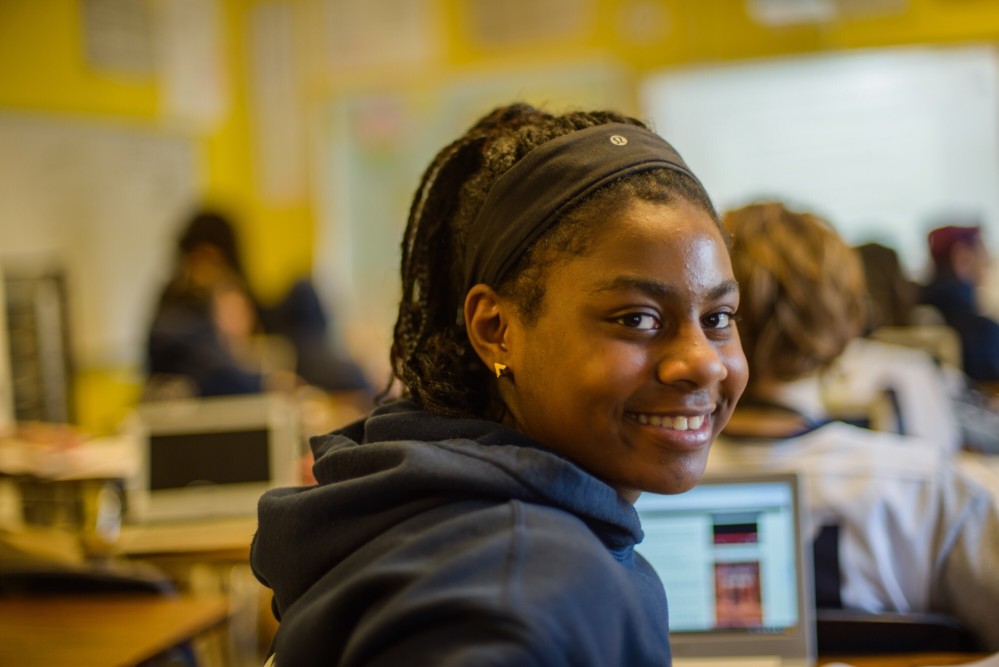Decoding Dyslexia
 Kids have a lot to learn in their first five years of life. They learn to walk, talk, and eventually to start reading. But while kids can pick up walking and talking naturally, they must be taught how to read. Children who struggle with the building blocks of reading may be at risk for developing dyslexia. Read more ›
Kids have a lot to learn in their first five years of life. They learn to walk, talk, and eventually to start reading. But while kids can pick up walking and talking naturally, they must be taught how to read. Children who struggle with the building blocks of reading may be at risk for developing dyslexia. Read more ›


 Gifted learners with a learning difference like ADHD are also referred to as twice exceptional or 2e.
Gifted learners with a learning difference like ADHD are also referred to as twice exceptional or 2e.
 It’s always difficult to hear your children yelling or sobbing that they don’t want to go to school. You may be even more sensitive to their reluctance and anxiety because of what an unpredictable place school has felt like for the past two years. So, what do you do when you have scrambled to get all your kids’ school supplies and clothes ready for school only to find that you now must coax them to get there?
It’s always difficult to hear your children yelling or sobbing that they don’t want to go to school. You may be even more sensitive to their reluctance and anxiety because of what an unpredictable place school has felt like for the past two years. So, what do you do when you have scrambled to get all your kids’ school supplies and clothes ready for school only to find that you now must coax them to get there? 
 Executive function skills help people stay focused, and manage the flow of information. Day to day, these skills allow a person to pay attention, plan ahead, remember details, and juggle multiple tasks. They also help control their behavior and emotions, delay immediate rewards for future benefits, and continue forward when faced with challenges.
Executive function skills help people stay focused, and manage the flow of information. Day to day, these skills allow a person to pay attention, plan ahead, remember details, and juggle multiple tasks. They also help control their behavior and emotions, delay immediate rewards for future benefits, and continue forward when faced with challenges. 


 When you hear a sound, how do you respond? You might choose to ignore it or investigate its source. This process of using our senses to interpret a situation and respond in a purposeful way is called sensory integration. When these systems don’t synthesize, whether due to a diagnosis like autism or ADHD or to a skills deficit, it can lead to a whole host of learning and behavioral challenges. Studies have found that 1 in every 6 children has sensory processing issues that make it more difficult for them to thrive in school.
When you hear a sound, how do you respond? You might choose to ignore it or investigate its source. This process of using our senses to interpret a situation and respond in a purposeful way is called sensory integration. When these systems don’t synthesize, whether due to a diagnosis like autism or ADHD or to a skills deficit, it can lead to a whole host of learning and behavioral challenges. Studies have found that 1 in every 6 children has sensory processing issues that make it more difficult for them to thrive in school. 
 The entire community is responsible for protecting and supporting children, especially in times of crisis. In empathizing with families, educators and community members who must respond to the needs of children as a traumatizing event unfolds,
The entire community is responsible for protecting and supporting children, especially in times of crisis. In empathizing with families, educators and community members who must respond to the needs of children as a traumatizing event unfolds, 
 ADHD is usually diagnosed in children; however, it often persists across one’s lifespan. Learn more about ADHD symptoms at different ages.
ADHD is usually diagnosed in children; however, it often persists across one’s lifespan. Learn more about ADHD symptoms at different ages. 

